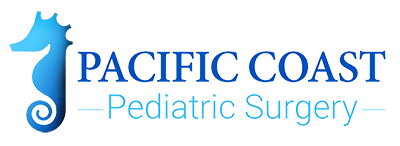The Importance of Prenatal Consultation for Digestive Tract Disorders
For expecting parents, the excitement of welcoming a new baby comes with a natural focus on their child’s health. When a prenatal screening detects a possible digestive tract disorder, that excitement may turn to worry and questions.
Knowing what to expect and how early intervention can help is essential. That’s where prenatal consultations with a pediatric surgeon play a crucial role. A prenatal consultation not only provides insights into your baby’s condition but also helps set a care plan tailored to their needs from day one.
Why Prenatal Consultation Matters
Prenatal consultations allow you to understand specific digestive tract disorders that may be detected before birth. Many digestive conditions can now be diagnosed through advanced imaging technology, such as ultrasound and fetal magnetic resonance imaging (MRI). They are often identified as early as the second trimester.
These appointments connect you with a pediatric specialist who will explain the diagnosis, answer questions, and outline the treatment path that awaits after birth. The sooner parents learn about these conditions, the sooner they can act to ensure the best possible outcome for their baby.
Common Digestive Tract Disorders Diagnosed Prenatally
Digestive tract issues can range from minor to complex, but early intervention significantly improves outcomes. Some of the more common conditions diagnosed in utero include:
- Esophageal atresia: A condition where the esophagus doesn’t connect properly to the stomach. It requires surgical intervention.
- Duodenal atresia: A blockage in the beginning of the small intestine, which can prevent proper digestion.
- Gastroschisis: A condition where part of the baby’s intestines are outside the body due to a hole in the abdominal wall.
- Hirschsprung’s disease: A rare disorder affecting the large intestine. It can cause difficulty passing stool.
Identifying these conditions prenatally lets you and your medical team prepare for potential surgeries or special care that may be needed shortly after your baby’s birth.
What Happens During a Prenatal Consultation?
During a prenatal consultation, the specialist will typically review fetal ultrasound or MRI images to assess the severity of the condition. Here’s what you can expect during the process:
- Medical history review: The doctor will discuss your family’s medical history, as well as any known genetic factors that might affect the baby’s health.
- Diagnostic imaging review: Your doctor will review prenatal imaging to confirm or further investigate any suspected digestive tract issues.
- Care planning: Once a diagnosis is confirmed, the specialist will explain potential treatments and help you understand what to expect post-birth.
- Coordination with the delivery team: The specialist may coordinate with the delivery team to ensure surgical intervention or support is immediately available after birth.
Prenatal consultations are tailored to each family’s situation. So, expect a compassionate, informative approach that prepares you for what lies ahead.
The Benefits of Early Intervention for Digestive Tract Disorders
Having a prenatal consultation isn’t only about diagnosis. It’s about providing clarity and reducing the risk of emergency interventions after birth. Here are some of the ways early intervention and preparation help:
- Reduced risk of emergency procedures: Having a care plan minimizes the need for emergency interventions after birth.
- Informed decision-making: You’ll be able to make decisions with a full understanding of your baby’s health needs.
- Peace of mind: Knowing that you’re prepared for any medical requirements offers great comfort.
- Better health outcomes: Studies show that early diagnosis and treatment planning improve long-term health outcomes for babies with congenital digestive disorders. Early diagnosis and treatment planning give them the best start in life.
Why Choose Specialized Prenatal Pediatric Care?
If your baby has been diagnosed with a digestive disorder, it’s essential to work with a pediatric specialist who has experience in prenatal care and newborn surgery. Working with a pediatric surgical team during pregnancy offers parents a trusted partner who understands their concerns and can provide the guidance needed at every stage. This approach gives you and your family the confidence to handle the unique challenges that come with these conditions.
Practical Steps for Expecting Parents
If you’re navigating a prenatal diagnosis, there are ways to prepare that will help you feel more in control and ready to meet your baby’s needs:
- Connect early: Schedule a prenatal consultation as soon as any concerns arise in your ultrasound or tests.
- Ask questions: Be open with your doctor and ask as many questions as you need to feel comfortable with the diagnosis and care plan.
- Prepare for delivery day: Work with your medical team to discuss how delivery day might look, including any immediate interventions your baby may need.
Moving Forward with Confidence
Learning about a digestive tract disorder in your unborn child may feel overwhelming. But, taking a proactive approach with prenatal consultations offers a clearer path forward.
By connecting with a skilled pediatric surgeon and establishing a care plan, you’re taking an important step to secure your baby’s health. Early intervention, detailed planning, and supportive care all work together to give you and your child the best possible start.
By offering the expertise and reassurance you need, the Pacific Coast Pediatric Surgery team is committed to supporting families through these complex diagnoses. Our pediatric surgeons specialize in a wide range of digestive tract disorders and ensure every child receives personalized care based on their specific needs.








